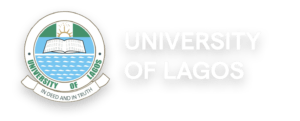A Professor of Surveying & Geoinformatics, Professor Joseph Olalekan Olusina says recent technological advancements have tremendously impacted the science of his profession.
He made this disclosure while delivering the 16th Inaugural Lecture at the University of Lagos in the 2021/2022 academic session, entitled: “Geomatics Engineering: The Enigmatography of National Development & Sustainability”.
The Inaugural lecturer posited that the overwhelming influence of technology on national development cannot be over-emphasized. He noted that the innovations being experienced have also simplified learning and practice of Surveying Engineering and promoted the profession from a skill-based endeavor into a knowledge-based enterprise.


He noted that technological advancements have tremendously impacted the mathematical science of Geodesy and Mapping (Surveying) and equally made a case for the change of Surveying and Geoinformatics to Geomatics Engineering; noting that the recent technological breakthroughs, advances in science education and the need to catch up with global trends in development and sustainability have called for a change.
Professor Olusina also highlighted the relevance of Geomatics Engineering and its ubiquitous nature while positing that if not properly embraced from planning to execution and monitoring, Nigeria’s quest for national development could be a pipe dream.



The soft-spoken intellectual gave an account of leveraging the use of geospatial models (GM) and Multi-Criteria Analysis (MCA) principles and techniques in actualizing an optimal path that avoids the rigorous method of route planning using the traditional method.
Some far-reaching contributions to knowledge were made by the Inaugural Lecturer to attain some of the goals of sustainable socio-economic development such as Geospatial Information Systems (GIS) applications in Transport Systems that can tackle transportation-associated problems constrained by several conflicting factors, Geospatial Management of Electricity Distribution Network which can enhance the reliability, effectiveness, and flexibility of the Geospatial modelling for the electricity distribution network.
He also mentioned the possibility of using GM and Multi-criteria analysis in complex planning processes and argued that it can be used not only in route planning but in other planning processes such as optimal location of a municipal solid waste landfill, airport, bus stop, industry, and so much more.
The latest installment in the inaugural lecture series is the sixth (6th) since the establishment of the Department of Quantity Surveying and Geoinformatics in UNILAG.








